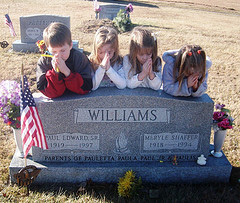Many people consider their pet a member of the family and, when it dies, they want to remember that pet by burying it in a special place.
Hartsdale Pet Cemetery and Crematory in Hartsdale, New York claims to be the oldest pet cemetery in the United States and, until recently, it allowed people to have their ashes buried next to those of their pet. After all, some people are closer to their dogs or cats than they are to other members of their family so it makes sense that they would want to be near them after death.
However, last February, the New York Division of Cemeteries announced that this was no longer possible and has since blocked Hartsdale from taking in human ashes. The government claimed that Hartsdale has been violating a law requiring that any cemetery providing burial space for humans must be operated as a not-for-profit corporation. By charging a fee and promoting their human interment service, Hartsdale was violating laws governing not-for-profit corporations.
According to a spokesperson for Hartsdale, it is a private, for profit business and, as such, is not under the jurisdiction of the Division of Cemeteries.
Until the law is clarified and a final decision made, people like Taylor York, a law professor, are out of luck. York’s uncle, Thomas Ryan, died in April and had arranged, and prepaid, to join his wife, Bunny and their two dogs, BJ I and BJ II, who are already buried there. Now Ryan’s ashes sit in a wooden box at his sister’s home because the state’s new rule won’t allow him to be buried at Hartsdale.
What do you think? Pet’s ashes are not allowed to be buried in a human cemetery; should people’s ashes be allowed to be buried with their pets in a pet cemetery?

